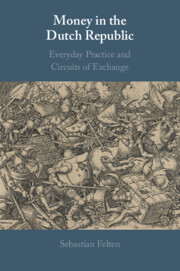
- Cited by 2
-
Cited byCrossref Citations
This Book has been cited by the following publications. This list is generated based on data provided by Crossref.
Felten, Sebastian 2023. Money Supplies. Isis, Vol. 114, Issue. 2, p. 387.
Fauvelle, Mikael 2024. Shell Money.
- Publisher:
- Cambridge University Press
- Online publication date:
- March 2022
- Print publication year:
- 2022
- Online ISBN:
- 9781009106375


